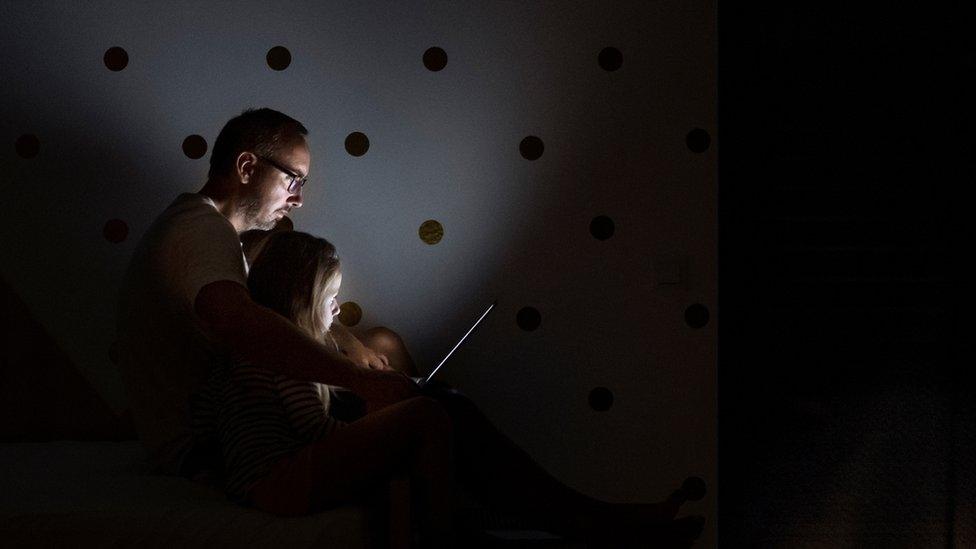Coronavirus: Some parents 'using Covid-19 to cut child access'
- Published
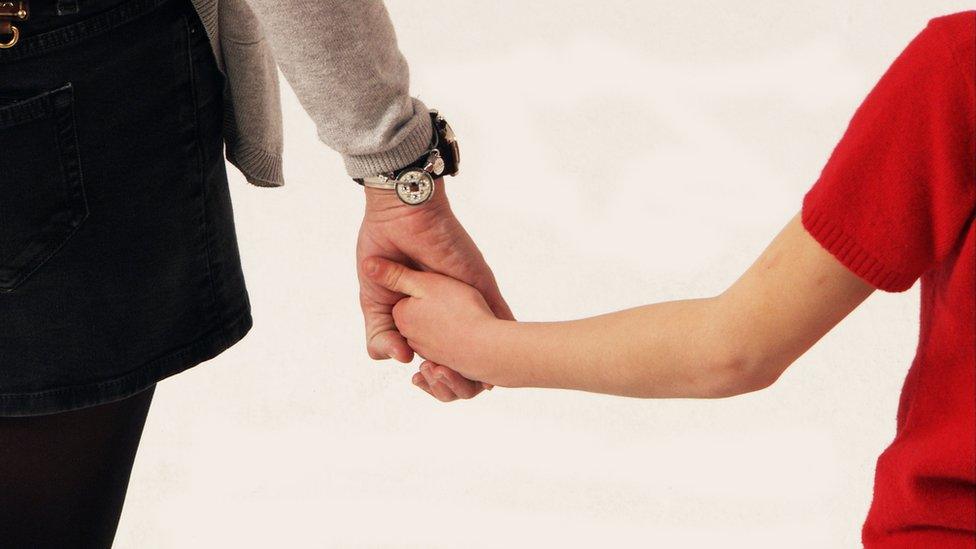
Lockdown measures are adding to the problems already faced by separated parents
Some parents involved in child contact disputes have used the Covid-19 crisis to cut their ex-partner's contact with their children, a charity has said.
Parenting NI has published new research examining the effect of lockdown measures on separated fathers., external
It said a "small number" of parents used lockdown to stop or reduce access.
Government guidance, external says children should see both parents during the lockdown in line with contact orders, unless this poses a health risk.
But in reality, ongoing coronavirus safety measures mean some parents have not been able to see their children for months.
All of Northern Ireland's child contact centres, external remain closed because of the pandemic, and no reopening date has been set.
These centres would normally provide a venue for families who require "supported contact" services, and their closure means those parents cannot meet their children face-to-face.
In addition to contact centre closures, Parenting NI says disruption to the courts system is among the lockdown measures disadvantaging parents who live apart from their children.
Ex-partners 'acting in bad faith'
The charity provides services for all parents, but also runs a dedicated support group for separated fathers called the Dad's Project.
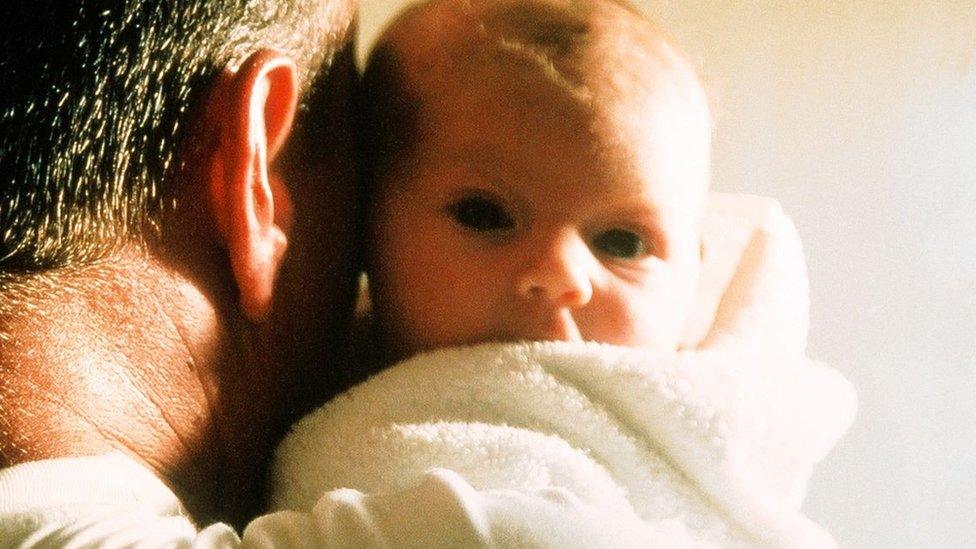
Parenting NI says fathers who no longer live with their children "experience more social isolation"
Ahead of Father's Day on Sunday, it has released a report outlining the difficulties some members of the Dad's Project have experienced as a result of the lockdown.
The pandemic has exacerbated the "social isolation" faced by separated fathers, it says.
"Small numbers of ex-partners acting in bad faith have seemingly been able to use the crisis as a means to reduce or remove contact," says the report.
Part of the problem was the ongoing disruption to court proceedings, said the report's author, Chris Eisenstadt.
Currently, judges are only dealing with the most urgent cases, which makes it difficult for non-resident parents to challenge their ex-partner if they break existing contact agreements.
"We don't know when normal legal services will resume," Mr Eisenstadt told BBC News NI.
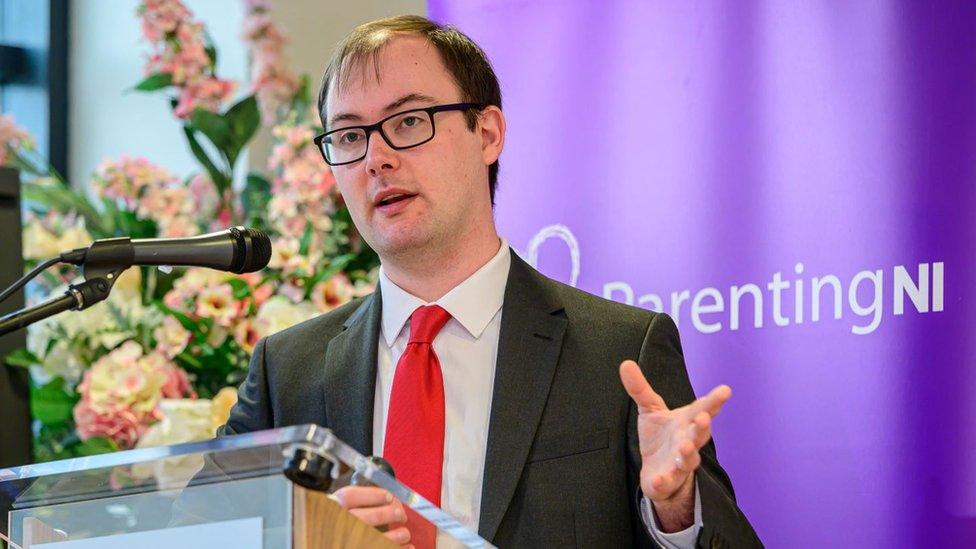
The report's author Chris Eisenstadt is Parenting NI's research and policy officer
In the interim, Northern Ireland's most senior judge issued guidance, external which allows parents to change existing child access arrangements if necessary to keep children and their carers safe from Covid-19.
But the Lord Chief Justice's guidelines warn that if there is a dispute, courts may later have to "consider whether each parent acted reasonably and sensibly" in the light of public health advice.
He advised parents their actions may be taken into account when future care orders are decided, adding non-resident parents may be able to "make up" time with their children when restrictions are lifted.
But Mr Eisenstadt said this provided little comfort to parents who were in the middle of contact disputes, losing time with their children.
"No-one should take the opportunity to use this crisis or any other crisis to reduce parental contact," he added, arguing that Facetime calls "can't replace" meeting children in person.
Support for struggling parents
Parental disputes are not always the reason for lockdown separation, however.
Some parents have agreed to suspend contact visits with children because face-to-face meetings would put someone in their household at risk of contracting the virus, said Mr Eisenstadt.
He gave the example of a frontline-working father, whose child lives with his ex-partner in the home of her elderly parents.
The man is not seeing his child in order to protect the child's grandparents who have been shielding from Covid-19.
Mr Eisenstadt said that while organisations like Parenting NI and its Dad's Project cannot solve contact problems, they can support parents who are struggling mentally and emotionally with separation.
In April, a Belfast solicitor told BBC News NI he was seeing an increase in child custody disputes since the Covid-19 lockdown
Negotiating contact between a child and non-resident parent can be highly contentious at the best of times, according to Joan Davis, director of Family Mediation NI.
But, she said, the Covid-19 lockdown was adding to the anxiety and frustration felt by families in an already difficult situation.
Ms Davis told BBC News NI that in some cases, parents had used coronavirus "as an excuse to stop their child seeing dad".
When children are very young, weeks without contact can mean their parent effectively "becomes a stranger", she explained, adding that relationships could suffer long-term damage.
The charity usually facilitates face-to-face mediation sessions to help separated parents negotiate a co-parenting plan without having to go to court.
But since late March, its staff have been working from home and mediation services have been moved to online platforms, external such as Zoom.
Its phone lines are still operating, but with reduced opening times.
Useless statistics?
Ms Davis told BBC News NI her organisation usually helped about 300 families a year, but there was "always a waiting list", so the disruption would affect those who needed their support.
Child contact disputes were a "massive issue" in Northern Ireland, she added, but there was no accurate way to measure how many families are affected.
She said divorce statistics were "completely useless" as a guide because more than 40% of children were now born to unmarried parents, while statistics on contact orders omit disputes which never reached court.
When asked about the difficulties parents face in challenging contact breaches during lockdown, the Department of Justice pointed to the Lord Chief Justice's guidelines.
The relevant section states that when litigants feel "a matter of contact is urgent", they may request a hearing by lodging a form with the courts service.
"On receipt of the form, the judge will determine whether the matter is urgent or necessary and if it can be dealt with administratively or will require a hearing," add the guidelines.
Regarding the closure of child contact centres, the Department of Health said centre staff continued to "maintain contact with and between parents and are currently exploring options for the re-instatement of their service".
When contact centres reopen, it is "likely that their capacity to offer sessions will be reduced to ensure adherence with social distancing guidelines," added the department.
- Published22 April 2020
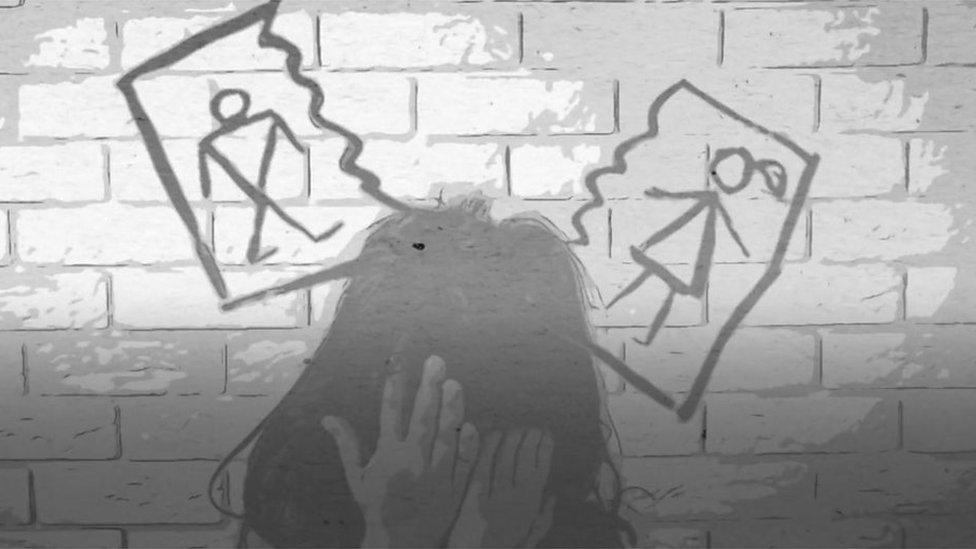
- Published21 April 2020
